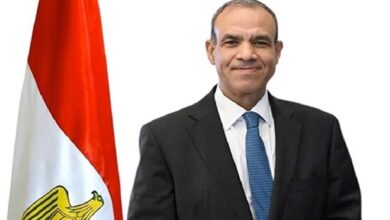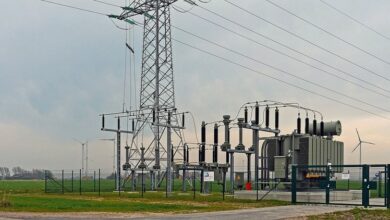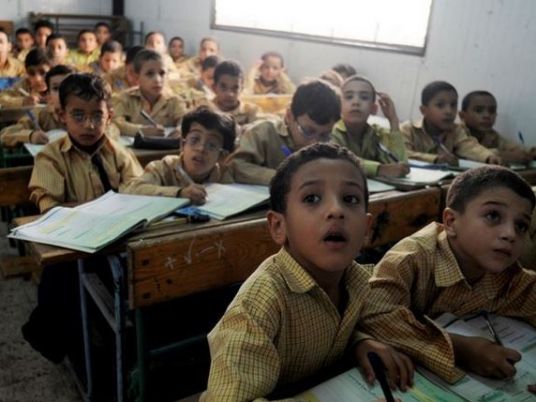
The final day of this year's high school examinations was marred by the circulation of papers online during the exams on Monday, despite additional security measures to prevent students sneaking mobile phones into exam centers.
The papers for geology, algebra, history and solid geometry were shared online 10 minutes after the exams had started, suggesting that at least some students had mobile phones on them, taking photographs and uploading the images to the internet.
Monday was the final day of high school exams, known in Egypt as the thanaweya amma, ending a month of stress and controversy in which several examination papers were leaked online, prompting protests by high school students. Around 560,000 high school students sat the last set of exams on Monday at 1,581 exam centers nationwide.
Responding to Monday's incident, the Education Ministry's task force on exam leaks announced it would take legal measures and disclose the source of the leakage.
However, as the exams ended, it was still not clear whether the papers circulated online on Monday had been photographed by students in the exams or uploaded from outside the exams by people with prior access to illegally leaked papers.
Earlier in June, Education Ministry officials asserted that there was an important difference between the circulation of papers online after examinations had started and the leaking of exam papers prior to the start of exams. In the former case, said officials, the leaks likely originated with students taking photographs in the examination halls, while the latter case would imply that officials had illegally leaked papers, breaching security rules surrounding printing and distribution.
However, the circulation of papers by students is still potentially serious, since the practice has in the past allowed students to receive model answers via their mobile phones during the exams, giving them an unfair advantage over others.
Ahead of Monday's exams, the Education Ministry announced that the exam papers were produced at an official government print house and would be transferred to the examination centers under tight security. It was not clear whether the print house mentioned was different from those normally used for producing exam papers.
Security arrangements for examination papers have come under close scrutiny due to this year's leaks, with many accusing officials of providing papers in return for cash payments. However, the leaks have mostly been published by the administrators of a Facebook page named "Shawming Byghashish Thanaweya Amma" (Shawming's Cheats for High School Exams).
Several arrests were made through June, with both officials and alleged Shawming adminstrators being taken into custody. However, the leaks continued unabated.
Shawming has combined its online leaks with statements demanding wholesale reform of Egypt's education system. Responding to calls for reform, President Abdel Fattah al-Sisi announced last week that the government was currently preparing a reform of high school education and that the new "vision" would be announced in September.
Meanwhile, ahead of Monday's exams, some students said they would wear black clothing in protest at the alleged arrest of several students during recent protests. Students protested outside the Education Ministry on June 27, demanding the resignation of the minister over the examination leaks scandal and objecting to the cancellation and rescheduling of examinations affected by leaks.
Edited translation from Al-Masry Al-Youm




